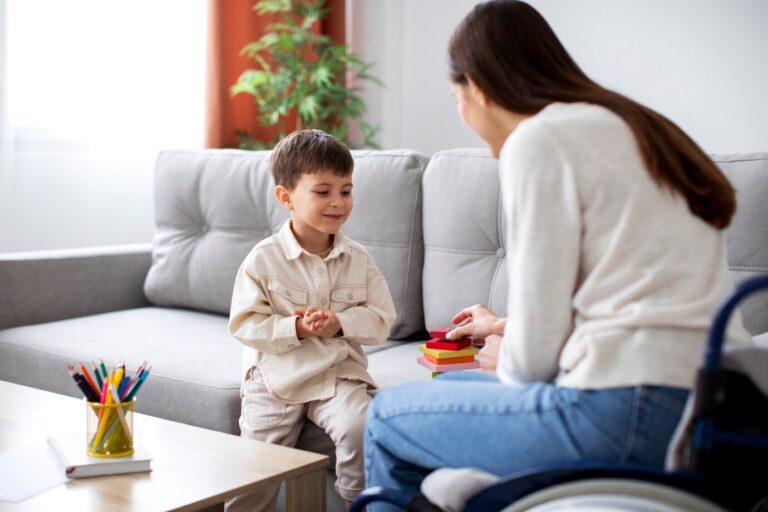Pediatric psychiatry focuses on supporting the mental health and emotional well-being of children and teens. It addresses challenges that influence how young minds think, feel, and behave, shaping their development. Since kids often express emotions differently than adults, specialized care helps uncover and meet their unique needs. Pediatric psychiatrists assess, guide, and support children through emotional and behavioral struggles, helping them grow and succeed.
Emotional Well-Being in Children
Children’s emotional well-being shapes their growth. It influences how they handle emotions, build relationships, and tackle challenges. When emotional health is supported, kids develop stronger social skills, handle stress more effectively, and maintain a positive outlook.
Life events and surroundings also play a big role in shaping a child’s mental state. A strong emotional foundation helps children build resilience and adapt as they navigate life.
Early Signs of Mental Health Issues
Mental health challenges in younger children can be hard to spot. Look for sudden changes in mood, behavior, or school performance. Physical symptoms like frequent headaches, stomachaches, or trouble sleeping without a clear cause may also point to underlying issues. Watch for behavioral signs like irritability, withdrawal from activities, or trouble focusing. Spotting these early signs helps address concerns before they grow.
The Role of Pediatric Psychiatrists
Pediatric psychiatrists diagnose and address mental health concerns in children through tailored assessments and treatments. This involves gathering input from parents, teachers, and caregivers to gain a comprehensive understanding of the child’s experiences. Treatments can include therapeutic approaches, such as talk therapy or play-based interventions. These strategies aim to address emotional and behavioral challenges through methods suited to the child’s developmental stage.
Common Mental Health Disorders in Children
Anxiety, depression, ADHD, and autism spectrum disorders can shape a child’s emotional well-being, influencing their academic performance, relationships, and self-esteem. For instance, anxiety might show up as constant worry or avoiding certain activities, while ADHD often brings challenges like impulsivity and trouble focusing. By addressing these challenges head-on and tailoring support to a child’s needs, it’s possible to boost their quality of life.
Supporting Emotional Health at Home and School
Parents and schools play a key role in boosting a child’s emotional well-being. At home, keep communication open and encourage kids to share their feelings. Show them healthy ways to cope with challenges and stick to consistent routines to create a sense of security. In schools, inclusive environments and strong collaboration between educators and families make a big difference. Programs or workshops that focus on social-emotional skills help children thrive emotionally. As a pediatric psychiatrist often highlights, these combined efforts from home and school can shape a strong foundation for a child’s mental health.
The Importance of Early Intervention
Taking proactive steps to address mental health early lead to improved long-term outcomes for children. Early intervention allows pediatric psychiatrists and caregivers to identify challenges before they persist or worsen. This includes therapies that teach coping skills, manage behavioral concerns, and support emotional regulation.
Looking Ahead in Pediatric Psychiatry
Advancements in pediatric psychiatry continue to enhance the way children’s mental health needs are met. Emerging approaches, such as telepsychiatry, provide convenient access to support. Additionally, ongoing research is creating more individualized care options tailored to the specific needs of children.
Take the Next Step for Your Child’s Well-Being
Children’s emotional well-being is at the forefront of their development and happiness. If you have concerns about your child’s mental health, reaching out to a pediatric psychiatrist may provide valuable guidance. By taking action and seeking support, you can help your child thrive emotionally and socially. Consider exploring the resources available in your area to learn more.

